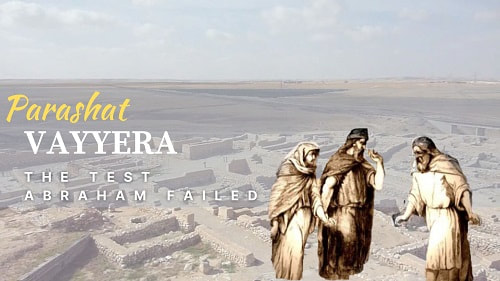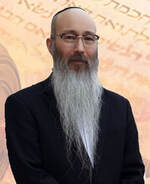|
By: HaRav Menashe Sasson Reporting from Jerusalem, Israel Published in the U.S.A. Parasha Vayyera concludes with the story of Aqedat Yizhaq [עקידת יצחק], the Binding of Yizhaq, which begins: “And it came to pass after these things. . . . [ויהי אחר הדברים האלה]” Bereshit 22:1. The Rashbam (Samuel ben Meir [Troyes, c. 1085 – c. 1158], grandson of Rashi) wrote that “whenever we find the construction ‘after these things’ [אחר הדברים האלה] what follows is [related to that which immediately precedes it].” Rashbam to Bereshit 22:1. In other words, Aqedat Yizhaq [עקידת יצחק] is related to the treaty which Abraham made with Abimelekh, a treaty which is described immediately prior to Aqedat Yizhaq [עקידת יצחק]. Abimelekh, an enemy of the Jewish people, was a Philistine who occupied Eretz Kena’an (Eretz Yisra’el) prior to Eretz Yisra’el being conquered by the descendants of Abraham. The essence of the treaty was a pact of non-aggression, a treaty which would be binding not just on the Abraham and Abimelekh, but also on their descendants. Abimelekh implored Abraham, “[S]wear to me here by HaShem that you will not deal falsely with me, nor with my son, nor with my son’s son, but [rather], according to the kindness that I have done to you, you shall do to me. . . .” Bereshit 21:23. Abraham consented to the treaty, saying: “I will swear.” Id., 21:24. Before signing the treaty, Abraham sought to resolve with Abimelekh the issue of a disputed water well. Abimelekh denied any knowledge or wrongdoing in relation to the well. Abraham and Abimelekh then “signed” their treaty with each other and Abraham gave Abimelekh seven [שבעה] sheep, which symbolized the seven-oath [שבועה] significance of the treaty. To commemorate the treaty, the location where the treaty was signed was named Be’er Sheva [באר שבע] which, literally translated, means “Well Seven” or “Well Oath.” As previously mentioned, the story of Aqedat Yizhaq [עקידת יצחק] is introduced with the pasuk, “And it came to pass after these things. . . . [ויהי אחר הדברים האלה]” Bereshit 22:1. The pasuk continues, “that HaShem tested Abraham [והאלהים נסה את-אברהם]. Id. The Rashbam writes that:
Rashbam to Bereshit 22:1 In the case of the treaty with Abimelekh, Rashbam interprets the word נסה to mean “rebuke.” Why did HaShem rebuke Abraham for entering into a treaty of non-aggression with Abimelekh? After all, is it not good to be at peace with one’s neighbors? The answer is that Abimelekh was a Philistine who lived in the land of Philistia. Philistia, in turn, was located in the geographic area which is also known as Eretz Yisra’el, a geographic area that HaShem commanded the Jewish people to conquer. Thus, we see that Abraham committed the sin of entering into a treaty, of swearing – of making an oath [שבועה] – that neither he, nor Yizhaq and his descendants, would perform the Biblical commandment of conquering and settling in Eretz Yisra’el. The oath remained in effect until the days of Sampson, when the Philistines repudiated, and thus nullified, the treaty by attacking the Jewish people. Masekhet Sota, 10a. Fortunately, Abraham passed his next test of faith, that of Aqedat Yizhaq [עקידת יצחק]. In contemporary times, we see that Medinat Yisra’el (the State of Israel) has, likewise, committed the sin of entering into treaties and other agreements which have had the effect of divesting the Jewish people of portions of Eretz Yisra’el. Examples include giving the Jordanians at least partial control over Har HaBayit (the Temple Mount), and giving Arabs control over a portion of Yerushalayim, as well as control over both Gaza and portions of Samaria and Judea and other areas of Eretz Yisra’el. May we, the Jewish people, like Abraham before us, pass our next test of faith by acquiring a Jewish government and leadership in Medinat Yisra’el that will not again commit the sin of divesting the Jewish people of any portion of Eretz Yisra’el, no matter how small, and which will work vigorously to undo the damage which has been caused by prior governments of Medinat Yisra’el. שבת שלום Shabbat Shalom! Copyright © The Israel Foundation. All Rights Reserved.
0 Comments
Your comment will be posted after it is approved.
Leave a Reply. |
THE ISRAEL FOUNDATION





